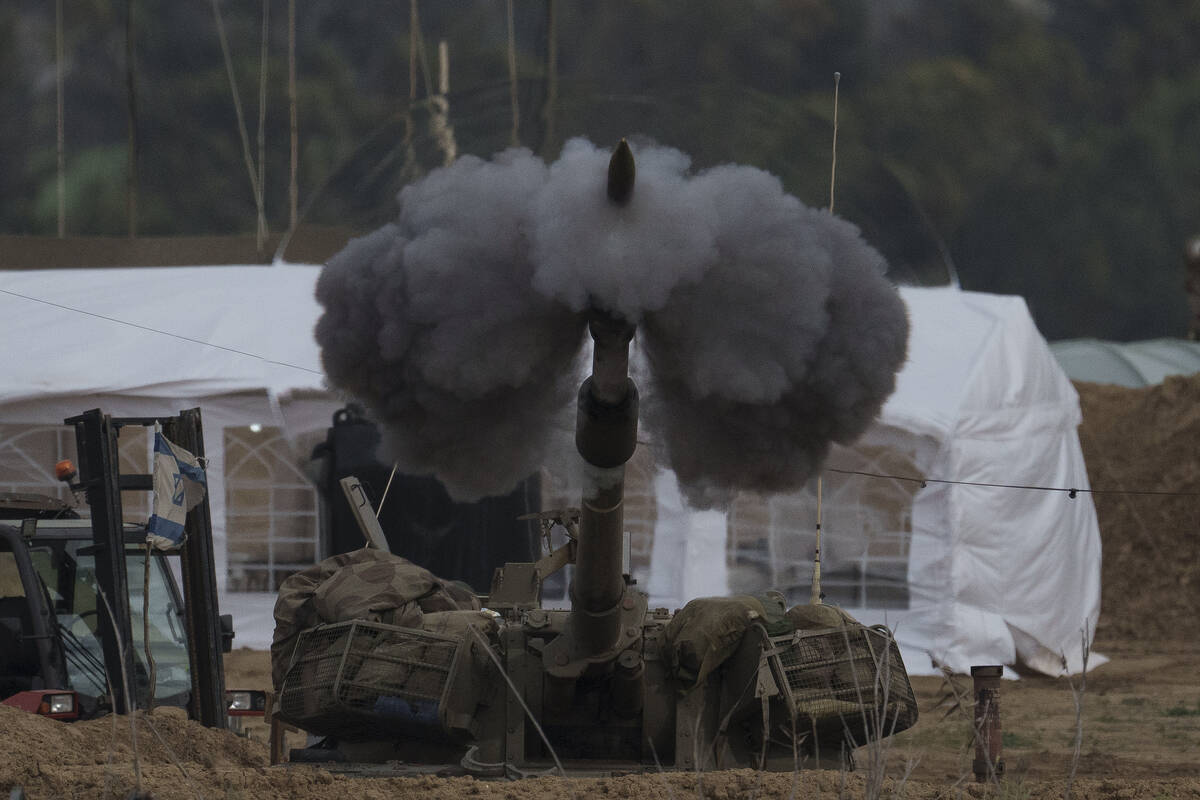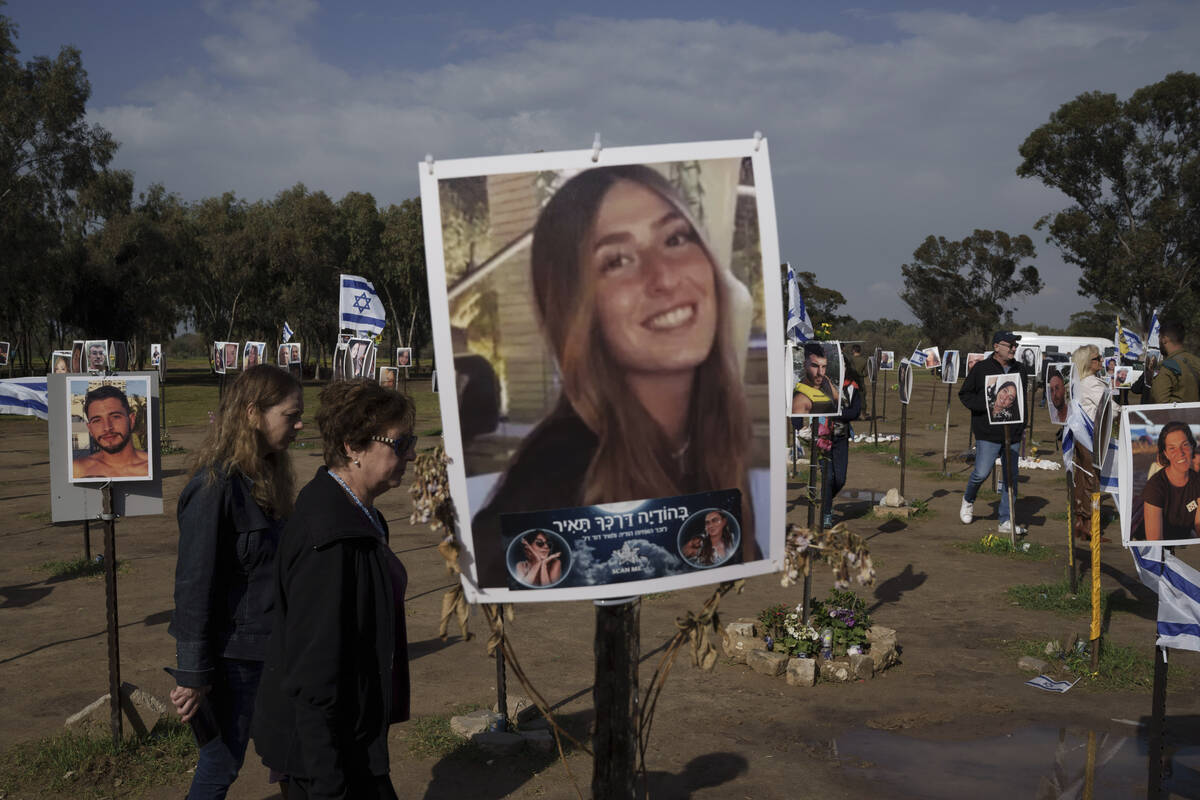Offensive in southern Gaza will be scaled back, Israeli official says
TEL AVIV, Israel — Israel’s defense minister said the intense Israeli military offensive in the southern Gaza Strip will soon be scaled back, but he is ruling out a cease-fire.
At a news conference Monday, Yoav Gallant said Israel recently ended its intensive ground operation in northern Gaza after taking military control of the area. He said he expected similar results in the south as well.
“It will end soon,” he said. “In both places we will reach the moment for the next stage.”
The statement came a day after the White House called on Israel to curtail its offensive.
Gallant gave no details on timing and said Israel is still targeting Hamas’ leaders. He called them the “head of the snake” and said they are believed to be hiding in Khan Younis, the southern city where the offensive has been focused in recent weeks.
Gallant also ruled out a cease-fire, saying military pressure is the only way to win the release of the more than 100 hostages still in Hamas captivity.
“Only from a position of strength can we ensure the release of hostages,” he said.
Hamas says 2 hostages killed in airstrikes
Hamas released a video showing what it said are the bodies of two Israeli hostages it claims were killed in Israeli airstrikes.
The video shows three hostages speaking to the camera, likely under duress. The three — Noa Argamani, 26, Yossi Sharabi, 53, and Itay Svirsky, 38 — urge Prime Minister Benjamin Netanyahu to halt the war and say they are living in difficult conditions without enough food and water and in danger of Israeli airstrikes. At the end of the video, it then displays what it says are the lifeless bodies of Sharabi and Svirsky.
Argamani then tells the camera that separate airstrikes killed Sharabi and Svirsky and that she was injured in her head and body by shrapnel. She then pleads for Israel to bring the hostages home before the video shows what appear to be the bodies of Sharabi and Svirsky.
Hamas had released a video of the three late Sunday, saying it would deliver an update on their conditions on Monday. It was not known when the video was made.
The claims could not be verified, and there was no immediate comment from the Israeli military or the forum representing Israeli hostages and their families.
Gallant accused Hamas of waging “psychological abuse” against Israeli families at a time when it is suffering heavy battlefield casualties.
Argamani’s case has drawn heavy attention because her mother is dying from cancer and has tearfully called for the release of her daughter while she is still alive.
Rear Adm. Daniel Hagari, the Israeli military spokesman, said the army had told the families of Svirsky and another hostage that it was “very concerned” over whether they were still alive. He said Israel had struck a building near where the hostages were being held but did not know their location at the time.
Death toll rises
The Oct. 7 Hamas terrorist attack from Gaza into southern Israel that triggered the war killed around 1,200 people and saw some 250 others taken hostage.
The Hamas-run Health Ministry in Gaza said Monday that the bodies of 132 people killed in Israeli strikes were brought to Gaza hospitals over the past day, raising the death toll from the start of the war to 24,100.
The ministry doesn’t distinguish between fighters and noncombatants in its tally. Israel says its forces have killed roughly 8,000 terrorists.
Israel blames Hamas for the high Palestinian death toll, saying its fighters make use of civilian buildings, and launch attacks from densely populated urban areas.
In Israel, a woman was killed and 12 other people were wounded in a car-ramming and stabbing attack in a suburb of Tel Aviv that police said was carried out by at least two Palestinians. They were later arrested. The suspects stole three different cars and attempted to run down pedestrians, police said.
Hamas praised the attack, but neither it nor other Palestinian armed groups claimed responsibility for it.
Palestinians have carried out a number of attacks against Israelis since the start of the war, mainly in Jerusalem or the occupied West Bank. Around 350 Palestinians have been killed by Israeli forces in the West Bank, according to the Palestinian Health Ministry, mostly in confrontations during Israeli arrest raids or violent protests.
Humanitarian crisis
The fighting, now in its 101st day, has set off a humanitarian crisis in Gaza, which has been especially severe in northern Gaza. The U.N. said Sunday that less than a quarter of aid convoys have reached their destinations in the north in January, because Israeli authorities denied most access. Israeli officials had no immediate comment.
The World Food Program, UNICEF and the World Health Organization said Monday that new entry routes need to be opened to Gaza, more trucks need to be allowed in each day, and aid workers and those seeking aid need to be allowed to move around safely.
U.N. Secretary-General Antonio Guterres said U.N. agencies and their partners “cannot effectively deliver humanitarian aid while Gaza is under such heavy, widespread and unrelenting bombardment.” He said the deaths of 152 U.N. staffers in Gaza since the start of the war is “the largest single loss of life in the history of our organization.”
The U.N. agencies said they want access to the Israeli port of Ashdod, located about 24 miles north of Gaza, which they say would allow larger amounts of aid to be shipped in and then sent directly to northern Gaza.
Israel has blamed the U.N. and other groups for the problems with aid delivery.
Moshe Tetro, an official with COGAT, an Israeli military body in charge of civilian Palestinian affairs, said last week that aid delivery would be more streamlined if the U.N. provided more workers to receive and pack the supplies. He said more trucks were needed to transfer the aid to Israel for security checks and that the working hours at the Rafah crossing between Gaza and Egypt needed to be extended.
———
Samy Magdy reported from Cairo, and Tia Goldenberg from Tel Aviv, Israel.























